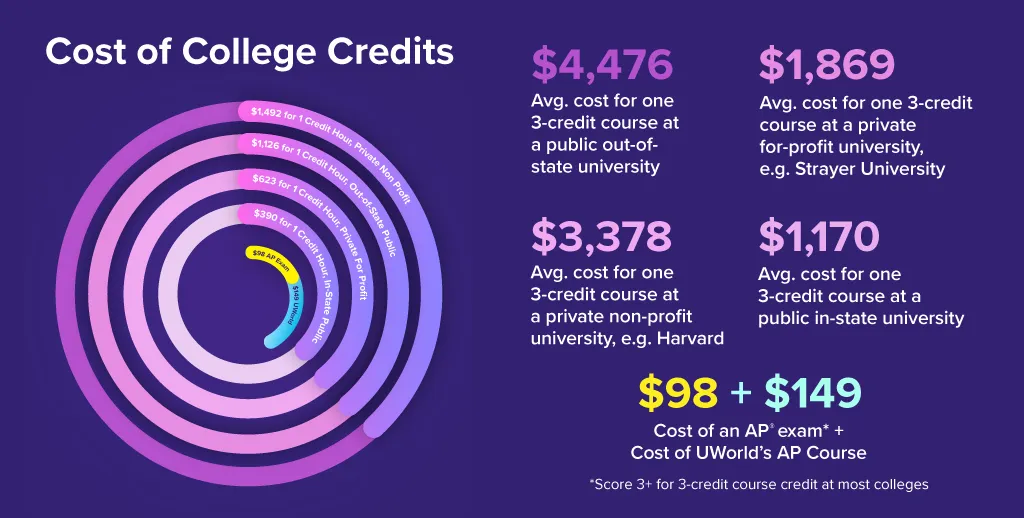Are you the first in your family planning to go to college? Feeling unsure about how to navigate this exciting—but sometimes overwhelming—journey? You're not alone. Being a first-generation college applicant comes with unique challenges, but also powerful opportunities to shine.
In this guide, we'll show you how to turn your story into strength, build a standout application, and confidently take the next steps toward your dream school. With tips, resources, and examples tailored just for first-gen students, this is your go-to college application guide.
Why First-Gen Students Have a Unique Story to Tell
First-generation college students—those whose parents didn't complete a four-year college degree—bring powerful qualities to the table. Admissions officers want to hear your story because it often reflects grit, determination, and a fresh perspective.
Many first-gen students juggle responsibilities at home, work part-time jobs, or take care of siblings while maintaining strong grades. These experiences demonstrate leadership and resilience—two traits that colleges highly value.
Remember: Your background isn’t something to hide. It’s what makes you exceptional.
Even former First Lady Michelle Obama, a proud first-generation college student, once battled self-doubt on her journey to higher education. Despite a counselor telling her she wasn't “Princeton material,” she not only earned her bachelor's degree from Princeton University but went on to earn a law degree from Harvard Law School—making her a double Ivy League graduate.
In a 2024 speech to high school students, she shared:
“I remember when I was in your shoes, and no matter how hard I worked to prepare, I had this little voice in the back of my head telling me that maybe, just maybe, I didn't belong. I know that it is easy to write yourself off even before your foot is in the door.”
— Michelle Obama (People, 2024)
Her words—and her journey—are a powerful reminder that uncertainty is normal, but it doesn't define your potential. Your story belongs on a college campus, and you are more than capable of thriving there.
How to Craft a Powerful Personal Statement
Your college essay is your chance to speak directly to admissions officers. First-gen students often worry they have “nothing special” to say. But in reality, you have something most applicants don't: a unique, compelling narrative.
Tips for First-Gen College Essay Success:
- Start with a defining moment.
Think of a moment that changed your perspective—maybe the first time you saw a college campus, helped a family member through a challenge, or realized what you want to do with your life. It doesn't need to be dramatic—it just needs to be meaningful to you. - Be authentic and honest.
Admissions officers don't expect perfection—they're looking for a real voice. Write how you speak, share your thoughts honestly, and avoid trying to sound overly formal or “impressive.” Your voice is enough. - You don't need to tell a hardship story.
Yes, many first-gen students face obstacles, but your essay doesn't have to focus on adversity to be powerful. You can write about curiosity, identity, pride, community, motivation, or your passion for a subject. Your joy and goals are just as valid as your struggles. - Reflect on how you've grown.
What have your experiences taught you? How have they shaped the way you think? Colleges want to know how you make sense of your journey, not just what happened. - Use specific examples.
Don't just say you're hardworking or responsible—show it. For example, you might describe what it was like balancing a part-time job with school, managing family responsibilities, or leading a student group. - Connect your past to your future.
Admissions officers want to see your potential. Talk about how your experiences have shaped your interests and goals, and why college is your next step.
Academic Excellence and Strategic Course Selection
One of the biggest myths first-gen students hear is that they can only succeed if they attend a high school with tons of AP and honors classes. But here's the truth: colleges look at what you do with the opportunities you have—and that includes going beyond the classroom.
Here's how to stand out academically:
- Take the most rigorous courses available to you.
If your school offers honors or AP courses, enroll if you can. Challenging yourself shows initiative and drive. - Stay consistent in your grades.
A strong GPA—especially one that improves over time—sends a powerful message about your work ethic and growth mindset. - Use online tools to strengthen your skills.
Whether or not your school offers advanced classes, you can still prepare like a top student. Our AP and SAT prep gives you realistic practice questions, step-by-step explanations, and custom quizzes that fit your schedule. - You don't need to take an AP course to take an AP exam.
Many students don't realize this: you can self-study for AP exams—even if your school doesn't offer the course. Investing our AP Courses lets you prepare independently, impress admissions committees with your initiative, and earn real college credit. Pro tip: Don't be fooled by sticker shock - our AP courses may seem expensive at first, but when you do the math, it can actually save you thousands in college tuition. Scoring well on AP exams could help you skip introductory college courses or even graduate early.

Building a Standout College Resume
A standout resume isn't about checking boxes—it's about showcasing your story. First-gen students often have experiences that may not be “traditional,” but are deeply meaningful.
What to include:
- Leadership and initiative. Started a club? Managed a part-time job? Took care of siblings? That's leadership.
- Quality over quantity. A few long-term commitments say more than 10 one-off activities.
- Community involvement. Volunteer work, church activities, and activism count.
Use action verbs and quantify your impact when possible. (“Tutored 3 peers weekly in Algebra, leading to 2 full-grade improvements.”)
Seek Out Mentorship and Support Programs
You don't have to do this alone. Mentorship is one of the best tools a first-gen student can have. Reach out to:
- School counselors or college advisors
- Local community centers and nonprofits
- First-gen programs at colleges (like TRIO or Upward Bound)
- Online resources like our Discord Community
We offer free events, practice tips, and study groups.
Overcoming Common Concerns & Myths
You might have heard (or thought):
- “I'm not competitive enough.”
- “Top schools aren't for people like me.”
- “Everyone else knows what they're doing.”
Here's the truth: You are enough.
Colleges want to enrich their campuses with students from a wide range of life experiences. Being first-gen isn't a weakness—it's a strength. What matters is how you present yourself, how you've grown, and what you've learned from your journey.
Motivation Tip:
Every top applicant once felt unsure. The difference? They got started, asked for help, and kept going. So can you.
Final Thoughts: Your Future Starts Now
You don't need to have all the answers today, but you do need to take action. Here are 3 steps you can take right now:
- Start journaling your story. Think about what makes your journey unique.
- Explore UWorld's free college prep tools. They're designed for students just like you.
- Reach out to a mentor, teacher, or program. Ask one question to move forward.
Ready to build your dream future?
Start your free trial with UWorld today.
References
Obama, M. (2018). Becoming. Crown Publishing Group.
Obama, M. (2014, February 5). First Lady Michelle Obama: “I'm First” [Video]. The White House Archives. https://obamawhitehouse.archives.gov/blog/2014/02/05/first-lady-michelle-obama-i-m-first
Nelson, J. (2024, April 30). Michelle Obama surprises D.C. high schoolers to celebrate their college decisions: 'We need your perspectives'. People. https://people.com/michelle-obama-surprises-high-schoolers-photos-8641037
UWorld. (n.d.). College Prep Products. https://collegeprep.uworld.com/
UWorld. (n.d.). College Application Help and SAT/ACT Prep Tools. https://collegeprep.uworld.com/
Related Articles
Love reading, writing, or exploring big ideas? Discover what it's like to major in subjects like English, History, or Philosophy—and how your passions can lead to fulfilling careers.
STEM Majors: Where Curiosity Meets InnovationIf you enjoy solving problems, building things, or experimenting with new ideas, a STEM major might be right for you. Learn what to expect in college and where a STEM degree can take you.
Health Professions & Clinical Sciences: A Future in CaringThinking about becoming a doctor, nurse, or physical therapist? Explore majors that lead to healthcare careers and find out how to start preparing now.
Social Sciences Majors: Understand People and the WorldInterested in how people think, behave, or govern? Dive into majors like psychology, sociology, economics, and political science to see how they connect to real-world impact.
Business, Management & Marketing Majors: Lead, Create, and GrowDrawn to leadership, entrepreneurship, or branding? Explore business-focused majors that open doors in every industry—from startups to global corporations.




